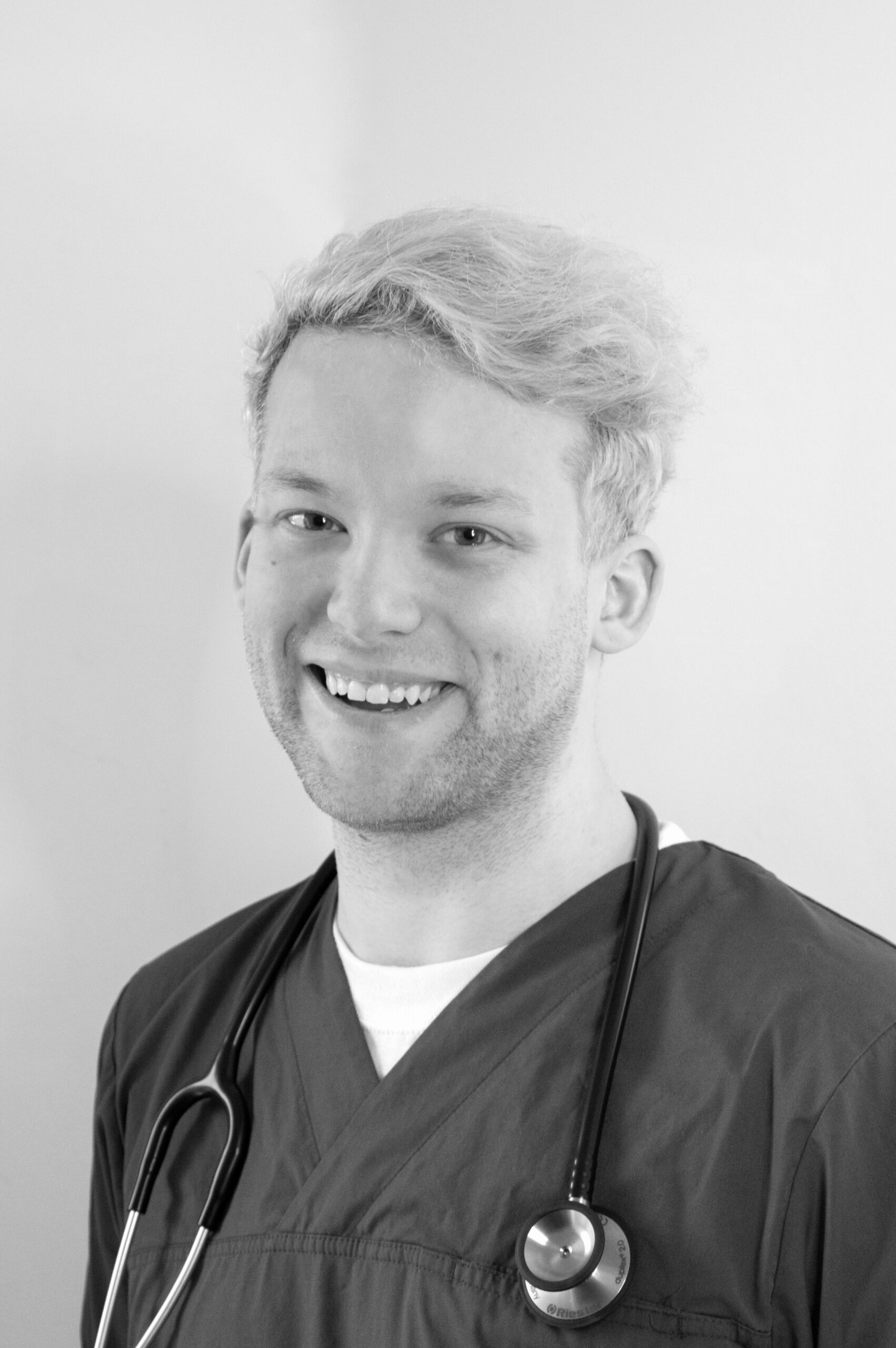As public health focuses on Covid-19, STIs run amok in Iceland.
The past two years have put a huge strain on our healthcare system from the sheer number of patients with covid to massive staff shortages. Although the focus has shifted toward the most contagious virus affecting society, a few other contagions rage on. In Iceland rates of syphilis and gonorrhea have seen sharp increases in the past months. Posting in Hommaspjallið, the Icelandic gay men’s group on Facebook, Sigurður Ýmir Sigurjónsson noted cases of gonorrhea have been out of control lately. “Luckily the epidemic of syphilis has begun to slow down, but now gonorrhea has taken over,” Sigurður wrote.
Sigurður, or Siggi as he is called, is a registered nurse that works as an associate nurse manager at Hrafnista nursing home and has also been working as a nurse consultant at Samtökin ‘78, the National Queer Organization. Although Iceland doesn’t have an LGBT+ health clinic, Siggi acts as an intermediary for anyone coming into the center looking for health-related advice and counseling.
GayIceland sat down with Siggi to chat about sexual health, the pandemic’s strain on the system, and what exactly the community should be doing about it.
For most countries, the beginning of the pandemic coincided with a huge drop in STI numbers. With everyone locked down at home and extremely distanced, hook-ups were happening a lot less and infection rates of most STIs dropped. Being single at the beginning of the pandemic practically meant celibacy. Over time though, particularly after more rules were lifted and the vaccines were deployed, numbers of STI infections returned to normal. Siggi says that STIs are a bit like covid in that the less we all do to prevent them, the worse they’re going to get. It takes a community approach.

“One of the problems is if you’re constantly dealing with the same infection you have the off chance that a specific strain of syphilis or gonorrhea will develop resistance to the antibiotics we’re using,” he says.
This is what the current STI crisis is like in Iceland amongst the men that have sex with men (MSM) community. “We’re seeing that now with gonorrhea. It was mostly in the UK but has spread around. We most definitely have it here,” says Siggi.
“Unsafe sex has become a fad because of PrEP. People are regarding their sexual health as only what their HIV status is, which is not the case.”
Siggi also mentions that letting these diseases run amok only gives them more opportunity to evolve antibiotic resistance and become more of a strain on the healthcare system. Sound familiar?
Then there are still the STIs where antibiotics can’t be used at all. “Yes most things we have are treatable but then you have herpes, HPV, Epstein Barr virus (mono).”
Siggi says a lot of people don’t consider these or the long-term health effects that an STI can bring. “It’s the superman syndrome, you think you’re invincible until it happens to you,” he says.
The introduction of PrEP (Pre-Exposure Prophylaxis) in Iceland has also made unprotected sex “trendy.” “Unsafe sex has become a fad because of PrEP. People are regarding their sexual health as only what their HIV status is, which is not the case,” says Siggi. “If you get gonorrhea, maybe a new strain that is more difficult to treat, it can lead to swelling of the testicles, infertility, etc. Syphilis can actually be dormant within the body for a long time because it changes into several stages. That’s why I post things like “we have a syphilis crisis going on right now”.”
Overall, STI transmission is a burden on the health system that is preventable and it comes at a time when the system is already overwhelmed. When asked how it was working as a nurse in the middle of a pandemic, Siggi says “um, it’s not fun,” in a deadpan tone. “You just kind of saw the worst things of all. I mean when we say “we don’t have enough beds” it’s not that we don’t have enough beds. We don’t have enough staff to man those beds,” he explains.
That’s why Siggi and others are working with the infectious disease and sexual health departments to spread awareness, inform people of the symptoms, and promote getting tested for STIs. “Several months after [I posted about the syphilis outbreak] the infection rate started to drop, so people we’re definitely reading it,” says Siggi. Though he can reach most of the community in one place, Siggi also recognizes that there are plenty of people who count as MSM but aren’t out openly or don’t identify as gay/bi. “The people I’m not reaching are closeted, anonymous, discreet people. Unless I go on Grindr and educate there, which probably isn’t going to work,” he says and laughs.

Progress is being made through the PrEP program at Fossvogur’s A3 ward, however. One of the doctors from the program, Bryndís Sigurðardóttir, said in an interview with HIV-Iceland that 280 men have participated and about 150 receive PrEP regularly. This has gone a long way in also recognizing other STIs says Siggi. “The PrEP project is delivering some gains for sexual health because people that are on PrEP have to get tested every 3 months. If any other STI comes up positive they have to get that treated and then the 3-month cycle begins again.”
Despite that silver lining, Siggi still thinks there’s room for improvement. For instance, access to the PrEP program is based on one location in Iceland and it’s difficult to participate in the program if you live in the countryside. “It’s slow-changing. If you live in Akureyri, for example, you don’t have access to the program unless you come to Reykjavik every few months. They don’t have the medication there and they don’t even have PEP (Post Exposure Prophylaxis)! I’ve called them and asked if they knew what PEP was and I was informing them about it. The ER just doesn’t have it.”
Access to PEP is important for those who’ve been exposed to HIV. It can be used within 72 hours of potential infection to thwart the virus from taking hold. When asked why the emergency departments of Akureyri and Selfoss don’t have these on stock, Siggi says he thinks “it’s just a lack of education. They don’t know that they should have it.”
From his perspective as a health care professional, Siggi thinks these drugs should be available not just for the LGBT+ community. “It’s also for IV drug users, sex workers. They should have access to this medication but in this case, they would have to get it from Reykjavik. It’s only available at one place in Iceland. It’s only the pharmacy in Landspitali that creates PEP packages,” he says. At-home tests for common STIs are not available in Iceland at pharmacies. PrEP and PEP cannot be ordered by mail as in many other countries.
“The people I’m not reaching are closeted, anonymous, discreet people. Unless I go on Grindr and educate there, which probably isn’t going to work.”
Siggi says he knows that awareness and education are the only things that will change these situations. That’s why he’s been advocating for the development of a title for nurses specifically trained in LGBT+ issues and healthcare. He says progress is on the way, but he can’t do it alone. “It’s never been done before. The University of Akureyri just put in its course list that people will be learning queer health within their classes and it’s mandatory. At the University of Iceland, the students are asking for it but the department has never asked me to come. It’s been on a voluntary basis.”
A lot of doctors and nurses have just never had to deal with these subjects before. “I hosted a lecture for health care workers while I was in Akureyri teaching. I’ve also been approached by nurses that are hosting a big Nordic nursing conference and they’ve asked me to be a lecturer talking about queer health. I was kind of surprised that this fell to me, like all of these people approaching me,” says Siggi. “I just did this because I thought this was missing and it turns out that it was really missing. My first goal was just to help patients within health care, but then the health care professionals needed me a lot too,” he clarifies.
With changes to increase access to testing, treatment, and prevention, the number of STIs should decrease. If we take a similar approach to covid, diseases like syphilis and gonorrhea can be kept under control and others irradicated from Iceland entirely. When push comes to shove it’s up to the community to stay protected on an individual basis and prevent the spread.
For more information about STIs, their symptoms, and treatments, check here or here.
For information about STI testing in Iceland, check here.
For more information about PEP, PrEP, and HIV check here.

